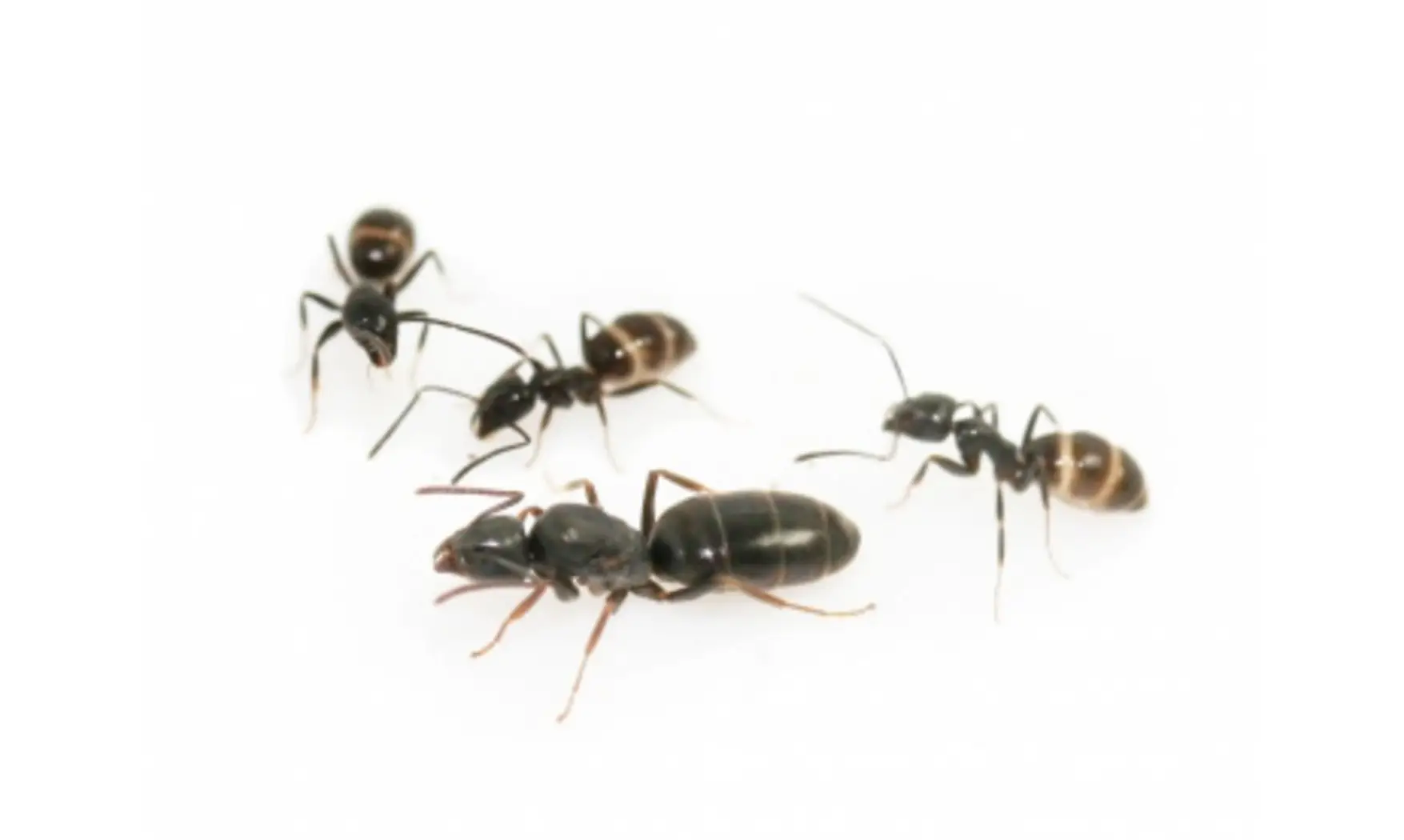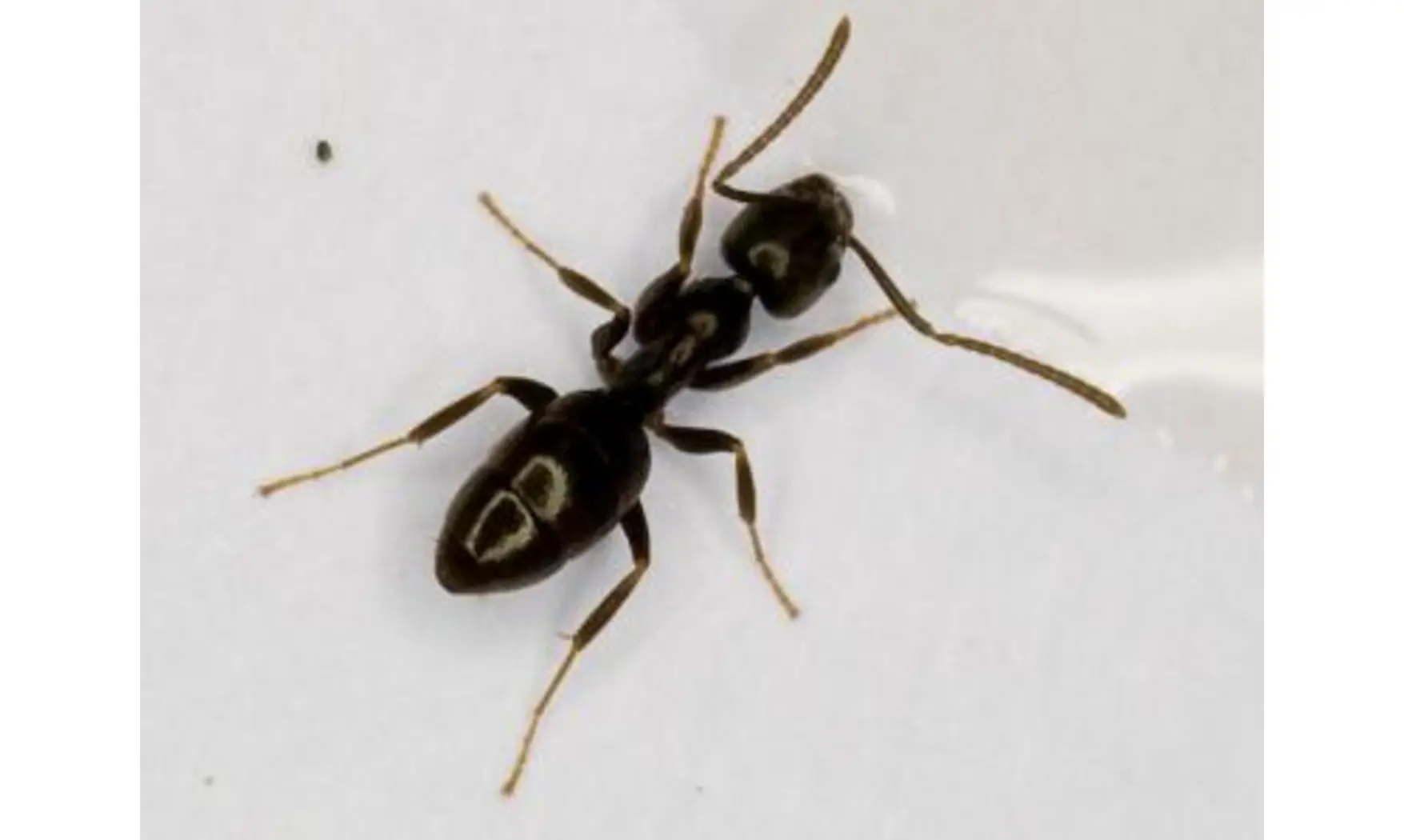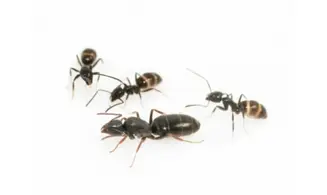



Product
Reference : FOUR-960
9.90€
0 in stock
Latin name: Tapinoma erraticum
Taxonomy: Subfamily: Dolichoderinae Tribes: Dolichoderini
Breeding level: Beginner
Geographical distribution: Central and Southern Europe, Central Asia
Habitat: Dry xerothermic prairies and ruderal zones
Colony shape: Polygyne
Queen: Size: 4.5 - 5mm Color: Shiny Black
Female workers: Size: 2 - 4mm Color: Shiny black
Major: No
Male: Size 4 - 4.5mm Color: Shiny Black
Food: Honeydew, but also a lot of small insects like mealworms, fly, mosquito, crickets etc ...
Humidity: Hunting area: 30 - 50% Nest: 50 - 60%
Temperature: Hunting area: 18 - 28 ° C Nest: 21 - 24 ° C
Hibernation: Yes, from mid-November to early March between 8 and 12 ° C
Nest type: Plexiglas nest, nest with tubes, reconstituted stone nest.
Description: Very aggressive and dominant ant species that can assimilate many food sources, unlike other ant species because of its toxicity. In case of danger, they run their gastre upwards, in the same way as Crematogaster.
They recruit very quickly and efficiently new sources of food.
Development: Swarming from May to June.
Foundation: Set in a cloister (without food) Development: 30 days from egg to worker (depending on temperature)
Size of the colony: Up to 10,000 individuals, the queen can reach the age of 20 years.
Taxonomy: Subfamily: Dolichoderinae Tribes: Dolichoderini
Breeding level: Beginner
Geographical distribution: Central and Southern Europe, Central Asia
Habitat: Dry xerothermic prairies and ruderal zones
Colony shape: Polygyne
Queen: Size: 4.5 - 5mm Color: Shiny Black
Female workers: Size: 2 - 4mm Color: Shiny black
Major: No
Male: Size 4 - 4.5mm Color: Shiny Black
Food: Honeydew, but also a lot of small insects like mealworms, fly, mosquito, crickets etc ...
Humidity: Hunting area: 30 - 50% Nest: 50 - 60%
Temperature: Hunting area: 18 - 28 ° C Nest: 21 - 24 ° C
Hibernation: Yes, from mid-November to early March between 8 and 12 ° C
Nest type: Plexiglas nest, nest with tubes, reconstituted stone nest.
Description: Very aggressive and dominant ant species that can assimilate many food sources, unlike other ant species because of its toxicity. In case of danger, they run their gastre upwards, in the same way as Crematogaster.
They recruit very quickly and efficiently new sources of food.
Development: Swarming from May to June.
Foundation: Set in a cloister (without food) Development: 30 days from egg to worker (depending on temperature)
Size of the colony: Up to 10,000 individuals, the queen can reach the age of 20 years.

